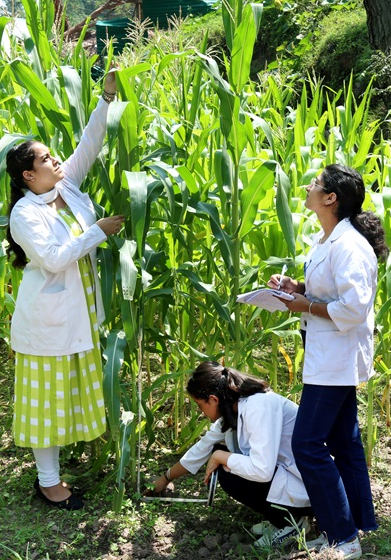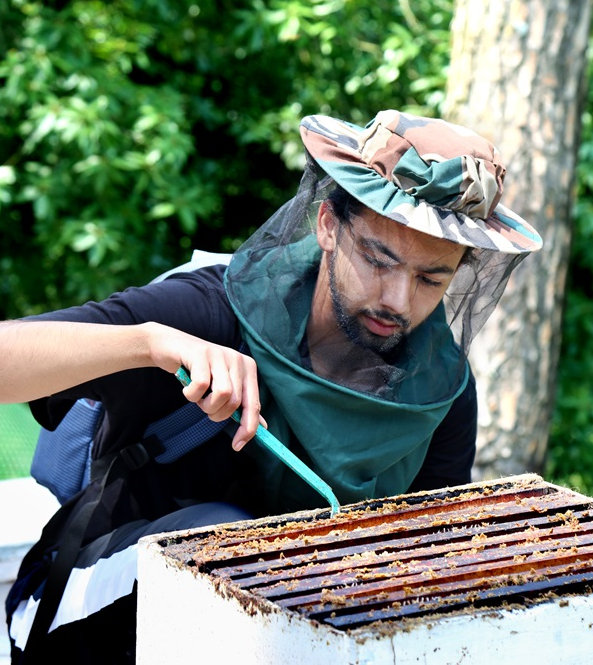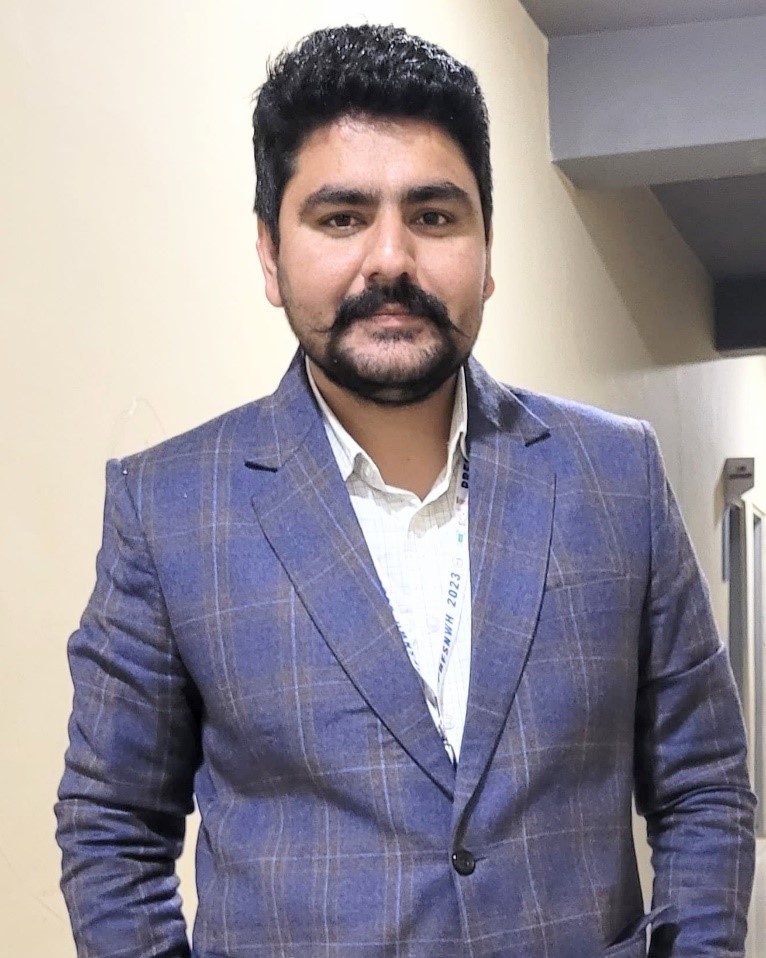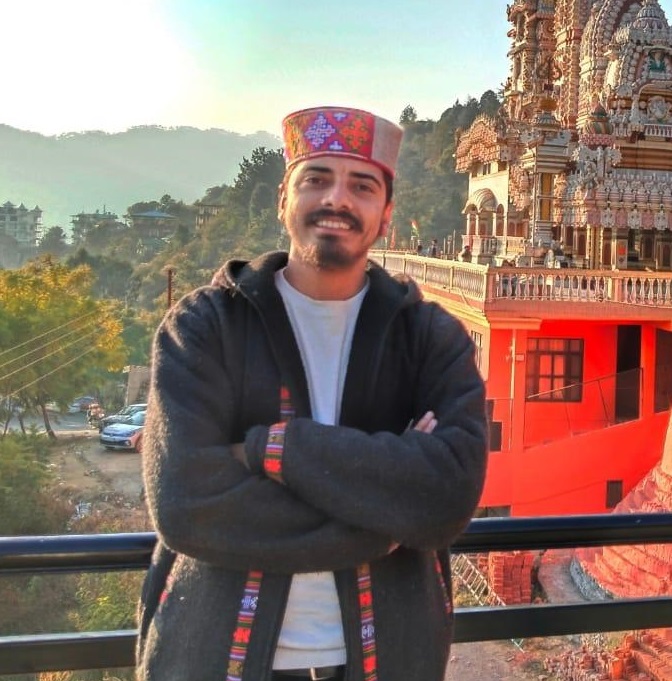BSc (Hons) Agriculture
Eligibility : Physics/ Chemistry/ Biology/ Mathematics/ Agriculture with minimum 3 subjects out of the above with minimum 60% marks.
- Duration : 4 years
- Admission Criteria : CUET/ NEET/JEE/ SAT or Shoolini University's multiple choice entrance test, and faculty interaction
BSc (Hons) Agriculture at Shoolini University aims to provide students with knowledge, core practical skills and competencies in agriculture as well as related fields. Shoolini encourages students to learn more about modern scientific equipment and techniques in agriculture. The BSc (Hons) Agriculture program lays a special focus on scientific management, diversification of farming, and biodiversity conservation of the Himalayan region.
The School of Agriculture has been named after Dr MS Swaminathan, a living legend and father of Green Revolution in India.
Over the years, the demand for well-trained and expert agriculture graduates has increased. To contribute to the resource pool of these graduates, Shoolini University offers BSc (Hons) Agriculture with a special focus on scientific management, diversification of farming, and biodiversity conservation of the Himalayan region.
Shoolini University is UGC Approved and NAAC Accredited.
Highlights
As a leading science university of India, Shoolini University offers a highly specialised BSc Agriculture degree
- Infrastructure guided by ICAR
- Faculty from Oxford, National Cancer Institute (USA), NIH (USA), IISc & Oxford
- Practical experience on university farmlands
- Students receive JRF at UG & PG levels

Global Links
Academic collaborations with universities in USA, UK, Korea, Taiwan, etc.

Real-Life Projects
Crop cafeteria and milk unit for field practicals. Kalaghat Farm for research and demonstration purposes.

Agri-Careers
Diverse, high-paying career paths in sectors like agribusiness, agricultural research, and sustainable practices.
VISION
To produce agricultural graduates with elevated knowledge and competence by imparting practical education through innovative and analytical approaches to create valuable manpower for sustainable agriculture, Agro-Industry, and contribution to society
MISSION
To prepare students for productive careers in the dynamic global food and agricultural industry and become responsible leaders in the community.
To provide students with a broad understanding of the sustainable production, distribution, marketing, and management of agricultural and environmental resources.
To prepare students for productive careers in the dynamic global food and agricultural industry and become responsible leaders in the community.
To provide students with a broad understanding of the sustainable production, distribution, marketing, and management of agricultural and environmental resources.
PROGRAM EDUCATIONAL OBJECTIVES
- PEO-1: To provide sound knowledge in the agriculture and allied science subjects required to solve common problems in the management of crop cultivation, improvement, livestock rearing, and marketing.
- PEO-2: To develop a good teaching-learning environment for higher studies and help in the selection of professional careers in government and private organizations, agro-based industries, educational/ research/extension, institutes, etc.
- PEO-3: To develop the skills for leadership, ethical integrity, and professional engagement in agriculture and allied sciences.
- PEO-4: To provide adequate information about natural and other resources through a course curriculum for the betterment of life.
- PEO-5: To produce highly skilled professionals in the field of various branches of agriculture to meet the needs of various scientific agriculture institutions as well as farmers' demand for agriculture professionals.
PROGRAM OUTCOME/ PROGRAM SPECIFIC OUTCOME
- PO1: Empower students to contribute to improved crop productivity (using their knowledge of improved agronomic practices, seed science, diseases and insect/pest management, resource use, marketing, and resource conservation).
- PO2: Gain hands-on experience in applying modern tools and techniques for sustainable agriculture to improve farmers’ welfare.
- PO3: Prepare our students to acquire capability for entrepreneurship and employability in their chosen agri- and allied fields
- PO4: Develop our students’ ability to engage in critical thinking to further agricultural education and research goals.
BSc (Hons) Agriculture Career Opportunities
- Agriculture Officers
- Watershed managers
- Scientists
- Consultants
- Marketing Specialists
- Seed/insecticides/pesticides/agri-implement managers
- Agri Processing
- Research & Development Officers
- Agripreneurs
A degree in agriculture prepares you for a wide range of careers in the agriculture industry and ancillary organisations. Being an agro-based economy, India provides vast job opportunities for BSc (Hons) Agriculture in agriculture production, management, development, extension and research.
|
|
|
|
Program Details
Top Faculty
Student Voices
Frequently Asked Questions
Who teaches BSc (Hons) Agriculture at Shoolini University?
The MS Swaminathan School of Agriculture at Shoolini University has a blend of senior and young faculty with Doctoral degrees in their respective fields. Senior faculty members are leaders in their fields and come with the exposure of working in state agricultural universities and industries, and have ample international exposure. Under the guidance of these senior faculty members, the younger faculty members are also well-trained. All faculty members are enthusiastic and motivated to experiment with promoting scientific agriculture for the benefit of the farming community.
Tell me about the curriculum for BSc (Hons) Agriculture at Shoolini University?
The School of Agriculture follows the course curriculum as prescribed by the ICAR for agricultural education in the country. Along with the prescribed curriculum, all infrastructure and other requirements conveyed by the ICAR are available to students of Agriculture. At present, the BSc (Hons) Agriculture program is strictly compliant with the 5th Deans’ committee report of the ICAR. The course curriculum gives added emphasis on various upcoming sub-fields of plant breeding, biotechnology, floriculture, and protective cultivation, apart from the training in the subject fields of agronomy, soil sciences, vegetable sciences, agricultural economics and policy, food sciences, engineering, veterinary sciences, etc.
What are the future opportunities after completing BSc (Hons) Agriculture from Shoolini University?
Students of BSc (Hons) Agriculture at Shoolini University enjoy good opportunities in allied areas. They join the government and private enterprises as Agriculture Officers, watershed managers, consultants, and marketing specialists. These profiles are found in a range of industries, including governments, NGOs, INGOs, banks, industrial units, etc. Students also join as marketing, sales and service officers or representatives in agricultural firms such as seed, insecticides, pesticides or agri-implement managers. Several students join as Research & Development officers or as scientists in agro-based industries such as food processing, agrochemicals, etc. The need for marketing (and e-marketing) specialists in agriculture is also on the rise. The School of Agriculture at Shoolini University also groom Agripreneurs. They create enterprises in nursery raising, beekeeping, mushroom cultivation, precision agriculture, dairy farming, poultry, etc.
What are the unique activities conducted by the School of Agriculture at Shoolini University?
Along with the prescribed course curriculum, the students of agriculture at Shoolini University are actively engaged in other related and extra-curricular activities. Our students take the lead in organising various functions on occasions like World Food Day, World Soil Day and Parthenium Awareness Week, Science Exhibitions, etc. Additionally, students participate in debates and declamation contests. We emphasise on hands-on-training and all students participate in practical training as well as in extension activities where they are actively engaged in sharing the knowledge they have gained with farmers in the vicinity through field visits.
Is practical training part of BSc (Hons) Agriculture?
We emphasise on hands-on and practical training as well as extension activities where atudents are actively engaged in sharing knowledge with the farmers in the vicinity through field visits.
Latest Blogs
Explore the latest insights and updates in our newest Shoolini University blogs!
Still have Queries? Contact Us
Please fill in the form and an expert from the admissions office will call you in the next 4 working hours.




.jpg)

.jpg)





















